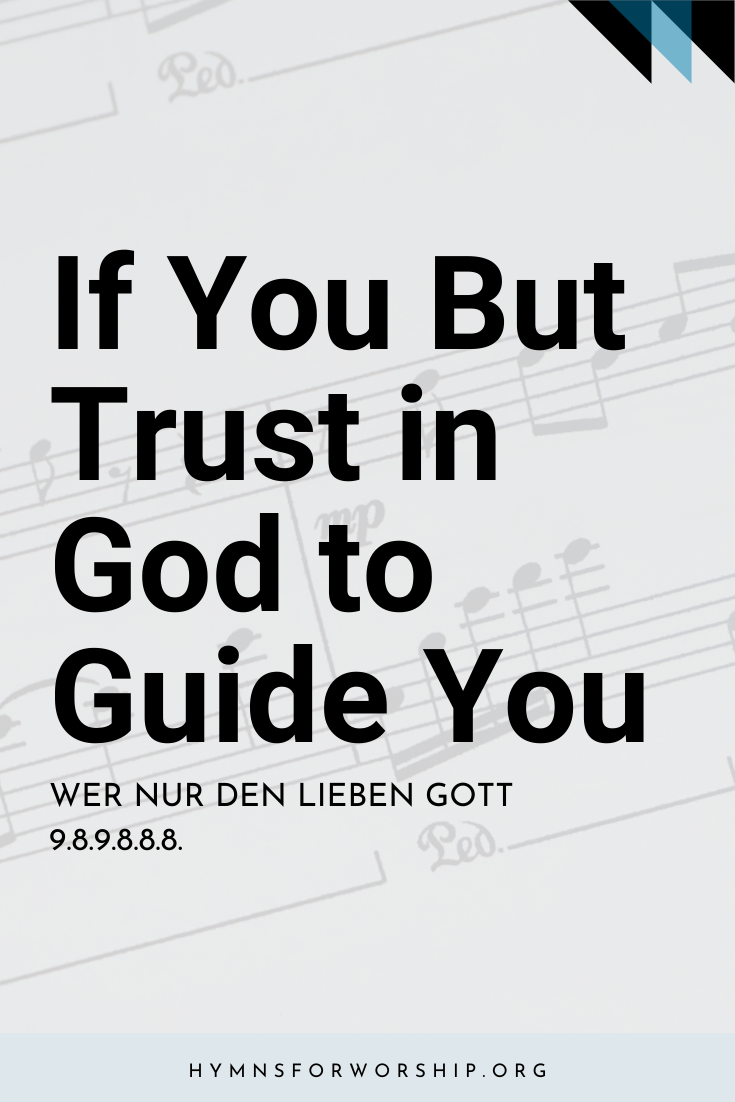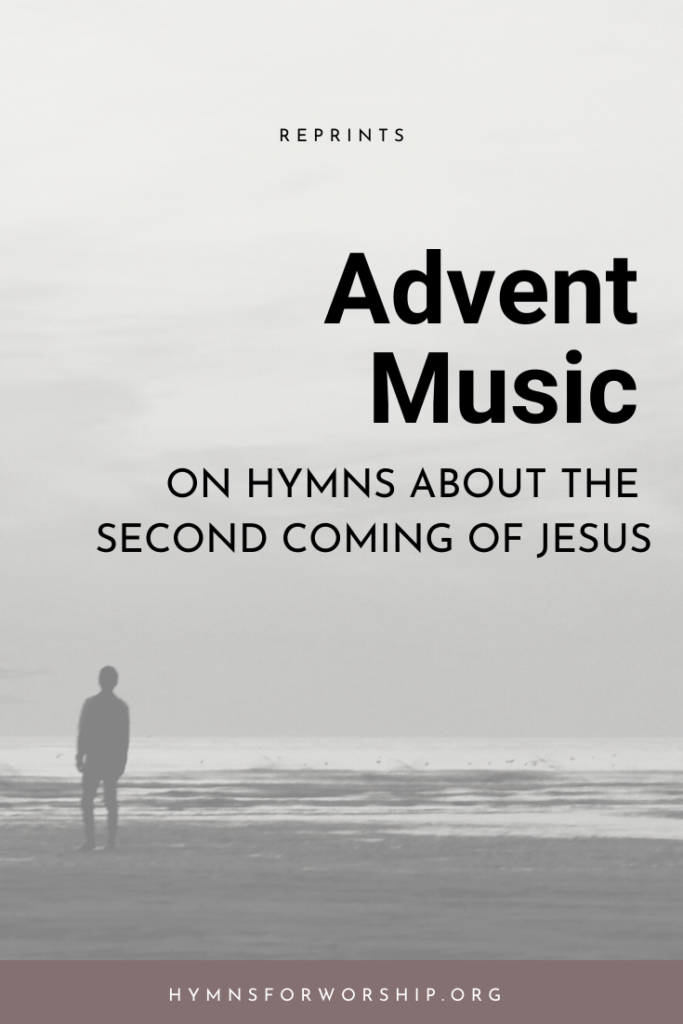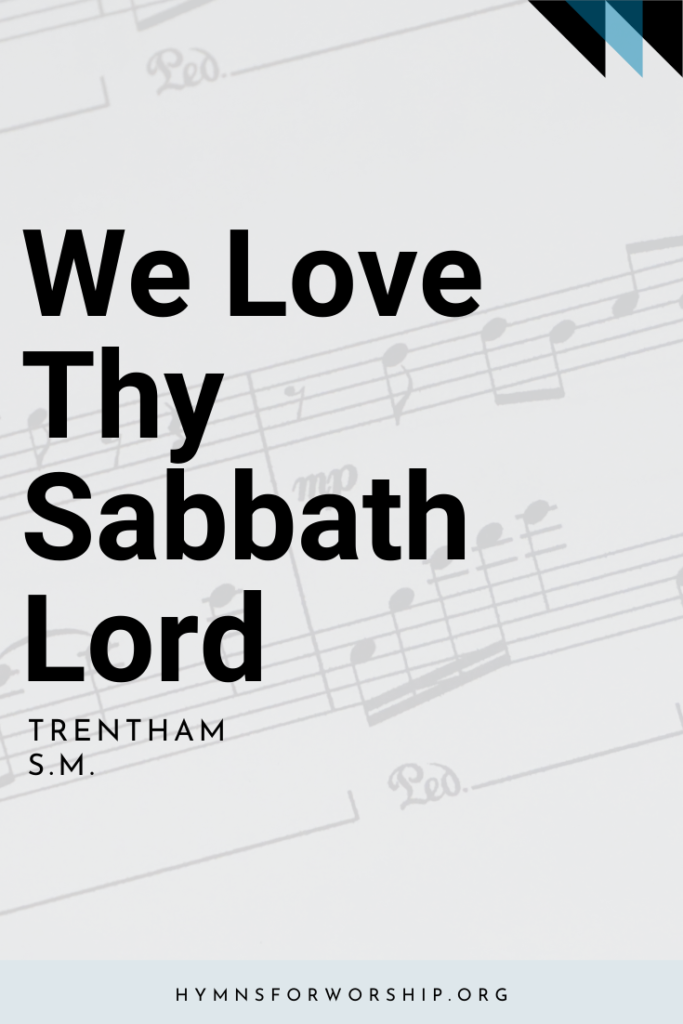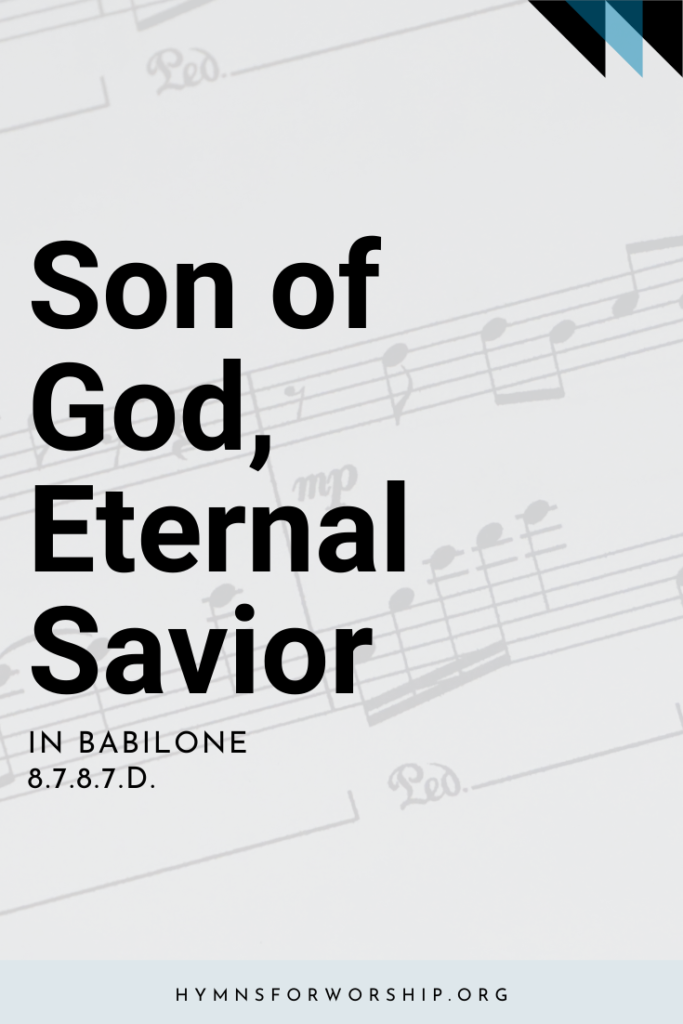CHRISTIAN LIFE >> FAITH & TRUST
SDAH 510
If you but trust in God to guide you
And place your confidence in Him,
You’ll find Him always there beside you,
To give you hope and strength within.
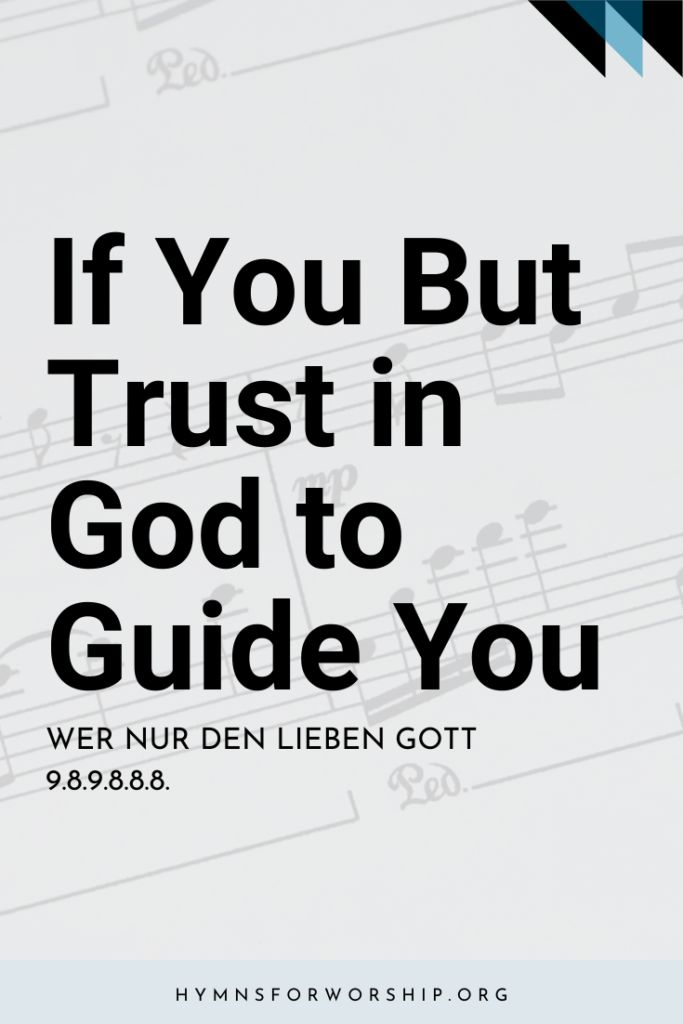

Text
1
If you but trust in God to guide you
And place your confidence in Him,
You’ll find Him always there beside you,
To give you hope and strength within.
For those who trust God’s changeless love
Build on the rock that will not move.
2
What gain is there in futile weeping,
In helpless anger and distress?
If you are in His care and keeping,
In sorrow will He love you less?
For He who took for you a cross
Will bring you safe through every loss.
3
In patient trust await His leisure
In cheerful hope, with heart content
To take whate’er your Father’s pleasure
And all discerning love have sent;
Doubt not your inmost wants are known
To Him who chose you for His own.
4
Sing, pray, and keep His ways unswerving,
Offer your service faithfully,
And trust His word; though undeserving,
You’ll find His promise true to be.
God never will forsake in need
The soul that trusts in Him indeed.

Hymn Info
Biblical Reference
Psalm 55:22 (a) Isa 26:4; Matt 7:25 (b) 1 Pet 5:7 (c) Luke 22:42 (d) Heb 13:5
Author
George Neumark (1621-1681) alt.
Copyright
Stanza 2 copyright 1978 by Lutheran Book of Worship. Used by permission of Augsburg Publishing House.
Hymn Tune
WER NUR DEN LIEBEN GOTT
Metrical Number
9.8.9.8.8.8.
Composer
George Neumark
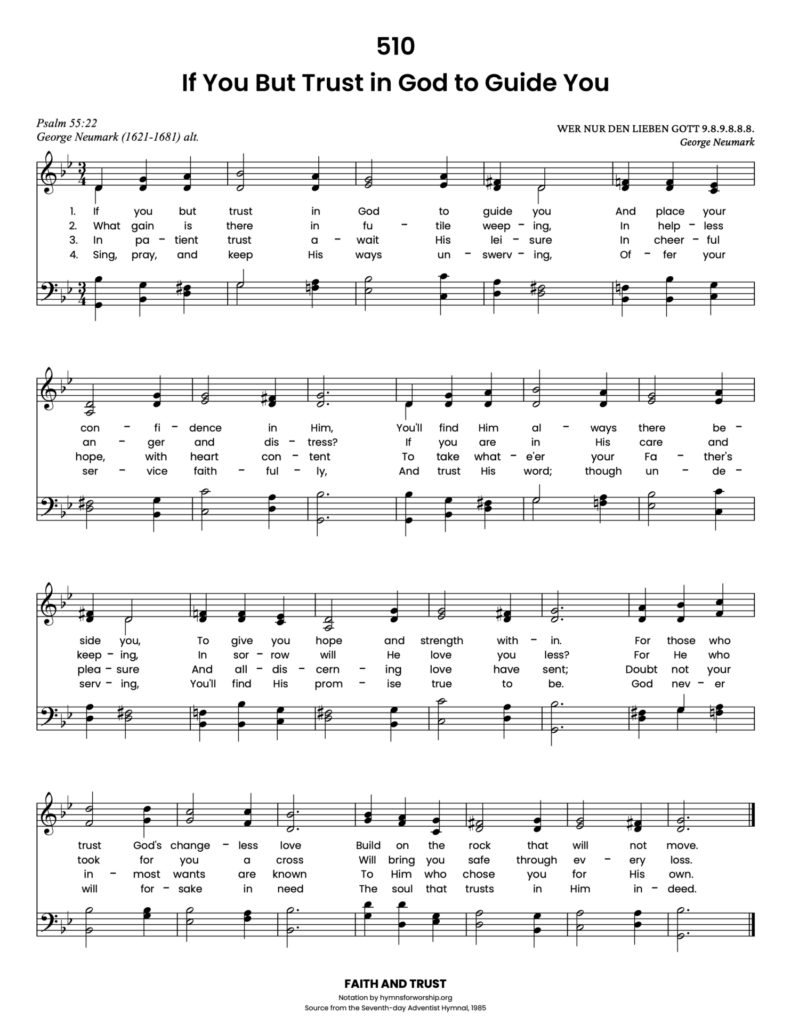
Get the hymn sheet in other keys here
Notes
Make each hymn more meaningful with these helpful tools: Short, ready-to-use hymn introductions for church bulletins, multiple ways to introduce a hymn based on your worship theme and in-depth history and insights to enrich your song service.
As a result of Daniel’s loyalty to God, the angel of the Lord closed the mouths of the hungry lions. Daniel was protected and vindicated before the king and those who sought to take his life. The experience of that most remarkable Hebrew exile stands as a token of God’s ultimate vindication of His people throughout the ages as they are opposed and persecuted by the powers of evil. (Lesson 7, 1st Quarter 2020 – Thursday, Vindication, 2/13/2020)
Our lesson says that if we want to experience God’s saving power, we must have to believe. This hymn is full of God’s promises that we may remember how God led us and how He will continue to be with us. (Lesson 10, 1st Quarter 2021 -Tuesday, Who Has Believed, 3/2/2021)
Yes, If you but trust in God to Guide you, you’ll find His promise true. For those who trust God’s changeless love, build on the Rock that is strong and true. (Lesson 4, 2nd Quarter 2021 -Tuesday, From Abraham to Abraham, 4/20/2021)
Even if we are called to go through loss, those who commit themselves to the keeping of Jesus will be brought safely through for His glory. Then let us trust our earthly needs, ourselves to Him Who took the cross that we might have eternal life. (Lesson 8, 1st Quarter 2023, Managing for the Master – Tuesday, “Seeking Godly Counsel” 2/22/23)

